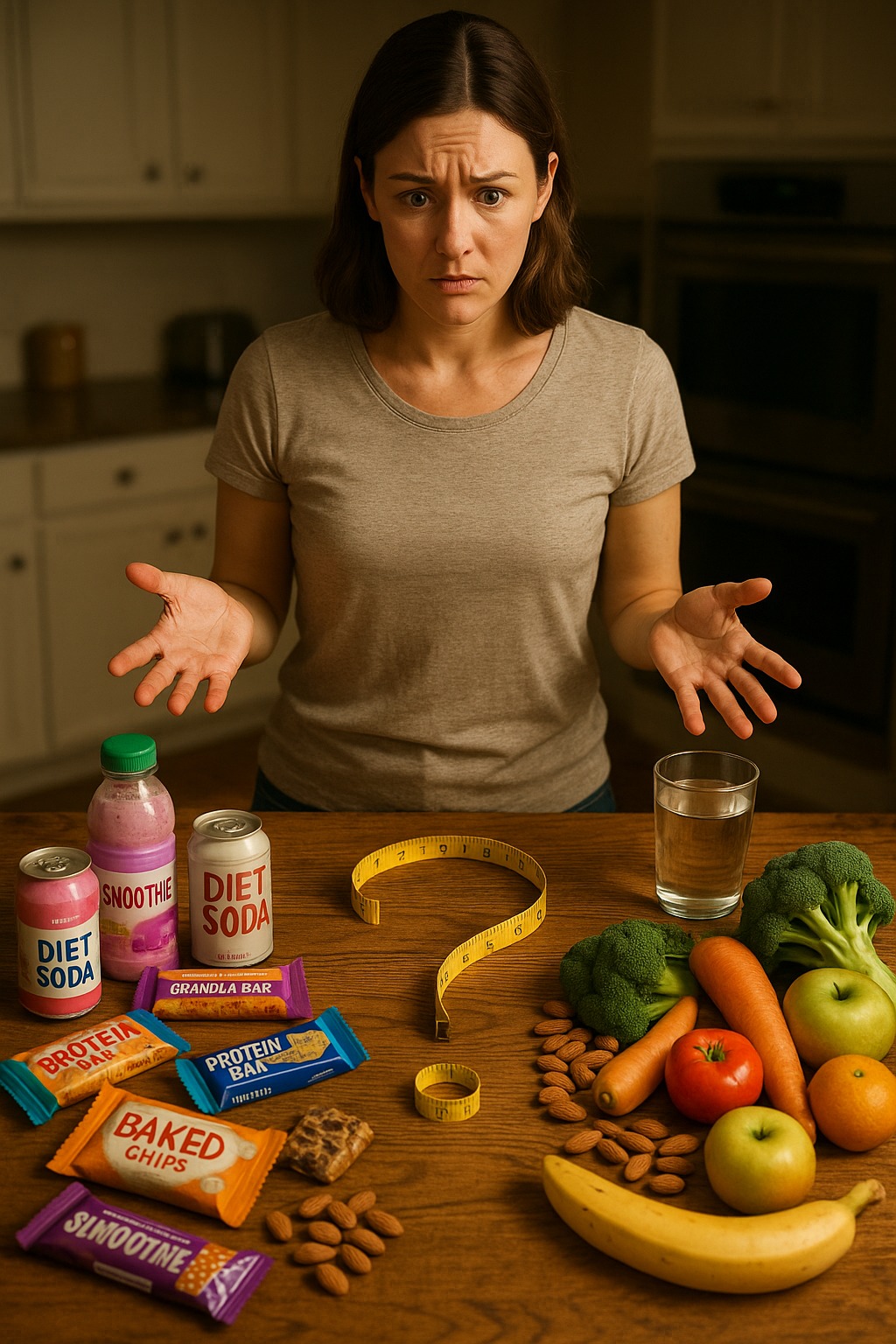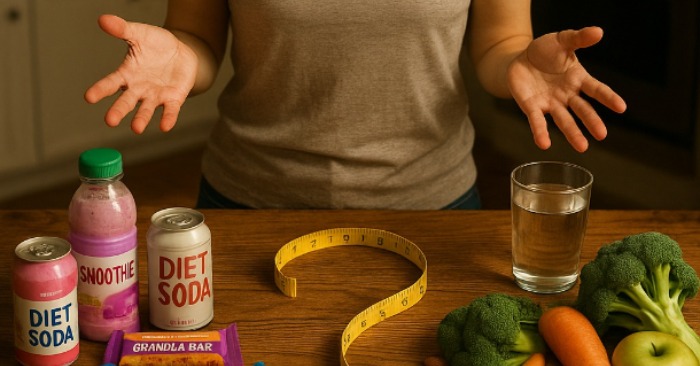Most people think losing weight is just about eating less and exercising more. That’s what the magazines say, that’s what the diet ads promise, and that’s often what doctors repeat in their offices. But if it were really that simple, wouldn’t everyone who tried a diet succeed?
The truth is, millions of people start diets every year, yet the majority end up right back where they started — or even heavier. Some blame themselves for lacking willpower, others jump to the next fad diet hoping this one will finally be the magic fix. But here’s what few people realize: it’s not all your fault.
There are hidden truths about dieting that rarely make it into everyday conversations with doctors. Not because they’re keeping secrets, but because the medical system is often focused on quick advice, not the deeper realities of how the human body works. Behind the curtain, science has revealed things about metabolism, hormones, and even gut bacteria that change the way we should look at weight loss forever.
Imagine this: your body fights against you when you try to diet. Foods labeled “healthy” may quietly sabotage your progress. And even if you eat perfectly and exercise daily, lack of sleep or stress could undo everything. These aren’t myths — they’re facts most people never hear until they’ve wasted years on yo-yo dieting.
If you’ve ever wondered why weight loss feels like an uphill battle, or why diets that work for others fail for you, keep reading. Here are six things most doctors won’t tell you about dieting — but once you know them, you’ll see weight loss in a completely different light.
1. Your Body Fights Back Against Dieting
When you cut calories drastically, your body doesn’t just sit quietly and let the weight melt off. Instead, it goes into survival mode. Your metabolism slows down to conserve energy, hunger hormones like ghrelin surge, and you suddenly find yourself craving high-calorie, sugary foods you don’t even normally want.
This is why most crash diets backfire. In the beginning, you might lose weight quickly, but after a few weeks, progress stalls and frustration grows. The truth is, your body is programmed to protect you from starvation, even if you’re surrounded by food. That’s why long-term, gradual changes — not starvation — are the only way to keep weight off.
2. “Healthy” Foods Can Still Make You Gain Weight
Food companies know people want quick “healthy” fixes, which is why supermarket shelves are filled with things like granola bars, low-fat yogurts, and gluten-free snacks. They sound good on the label, but many of them are loaded with sugar, refined carbs, or unhealthy oils.
For example, one store-bought smoothie might have more sugar than a can of soda. A “low-fat” yogurt could contain hidden sweeteners that spike your blood sugar and leave you hungry an hour later. Just because something says natural, organic, or healthy doesn’t mean it will help you lose weight. At the end of the day, portion size and total intake matter more than fancy packaging.
3. Sleep and Stress Matter More Than You Think
Doctors often tell people to eat better and exercise more, but they sometimes overlook two huge pieces of the weight-loss puzzle: sleep and stress.
Lack of sleep disrupts your hormones, making you crave sugar and carbs. That’s why after a bad night’s sleep, you’re far more likely to grab donuts or chips instead of something balanced. Stress has a similar effect — chronic stress keeps cortisol high, a hormone that not only makes you hungrier but also tells your body to store fat, especially around your belly.
So, if you’re trying to lose weight, getting 7–9 hours of good-quality sleep and finding ways to reduce stress (through walking, meditation, or even just unplugging from screens) is just as important as diet and exercise.
4. Exercise Won’t Erase a Bad Diet
A common misconception is that you can simply “burn off” whatever you eat. The truth is, exercise doesn’t work that way. Running on a treadmill for an hour might burn about 500 calories, but a single burger and fries can easily add up to 1,000 calories or more.
This doesn’t mean exercise isn’t important — it absolutely is. Exercise builds muscle, supports heart health, improves mood, and helps keep the weight off once you’ve lost it. But when it comes to dropping pounds, diet accounts for about 70–80% of results. In short: you can’t out-train a poor diet.
5. Your Gut Bacteria Control More Than You Realize
One of the biggest discoveries in nutrition science is the role of gut bacteria in weight and health. The trillions of microbes living in your intestines don’t just digest food — they also affect your cravings, your mood, and even how many calories your body absorbs.
A diet heavy in processed foods can shift your gut bacteria toward ones that promote fat storage, while a diet rich in fiber, whole foods, and fermented foods (like yogurt, kimchi, or sauerkraut) supports bacteria that help regulate weight.
If you’ve ever felt “addicted” to junk food, part of that might not even be you — it could be your gut bacteria demanding more of the foods they thrive on.
6. Most Diets Fail Because They’re Too Restrictive
Doctors often recommend standard diets, but what they don’t always explain is that the majority of people regain the weight within a year or two. Why? Because strict, rule-heavy diets are nearly impossible to maintain.
When you tell yourself you can never have bread, chocolate, or pizza again, eventually the cravings build up until you give in — and when you do, guilt sets in, followed by overeating. This cycle is why so many people feel like failures, when in reality, the diet itself set them up to fail.
The diets that work long-term aren’t really “diets” at all. They’re sustainable eating patterns. They allow flexibility, small treats, and balance. They don’t feel like punishment — they feel like life.
✅ The Real Secret
The uncomfortable truth is that there’s no magic pill, no miracle diet, and no quick fix. The key to lasting weight loss is balance: eating whole foods most of the time, allowing yourself treats without guilt, sleeping well, managing stress, and moving your body in ways you enjoy.
Doctors may not always tell you this, but it’s the only way to lose weight and keep it off.







